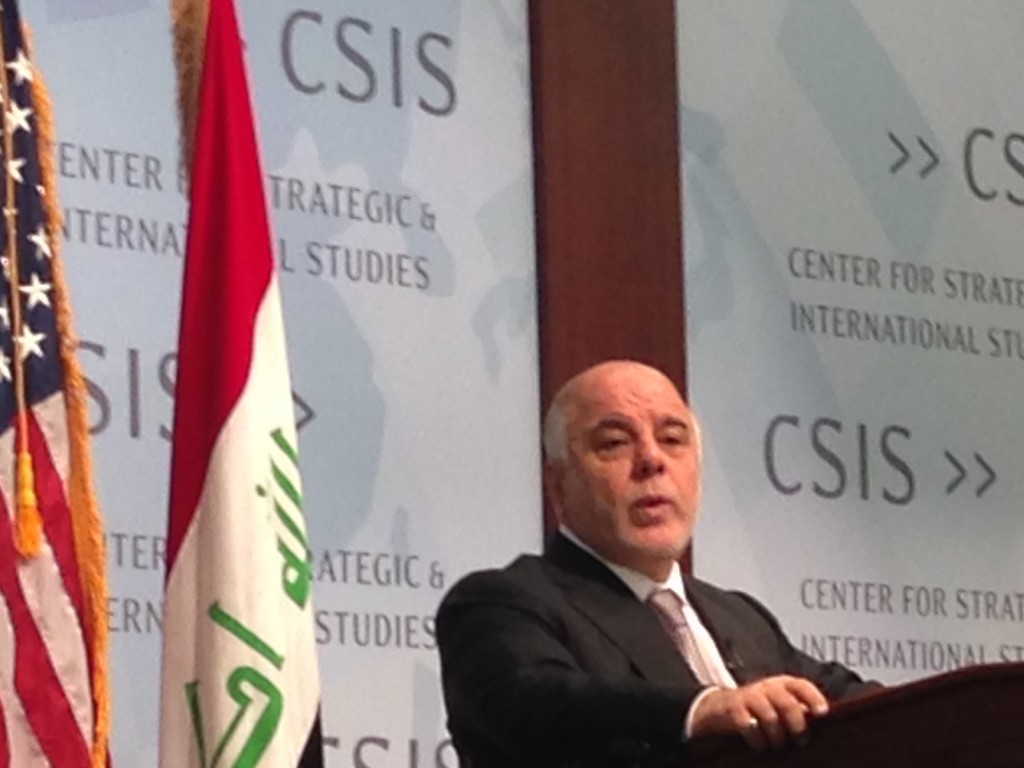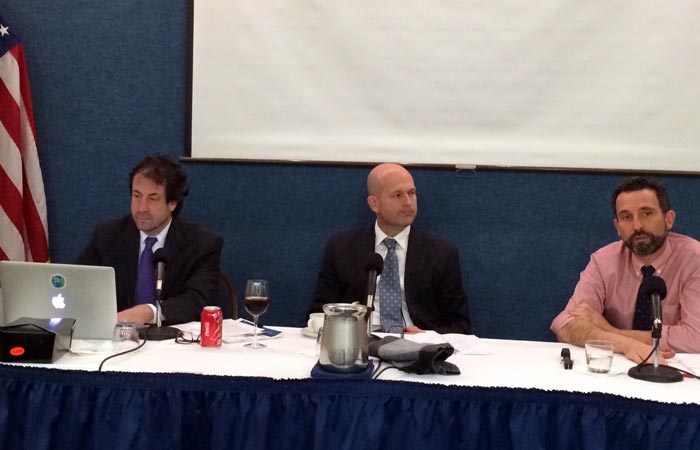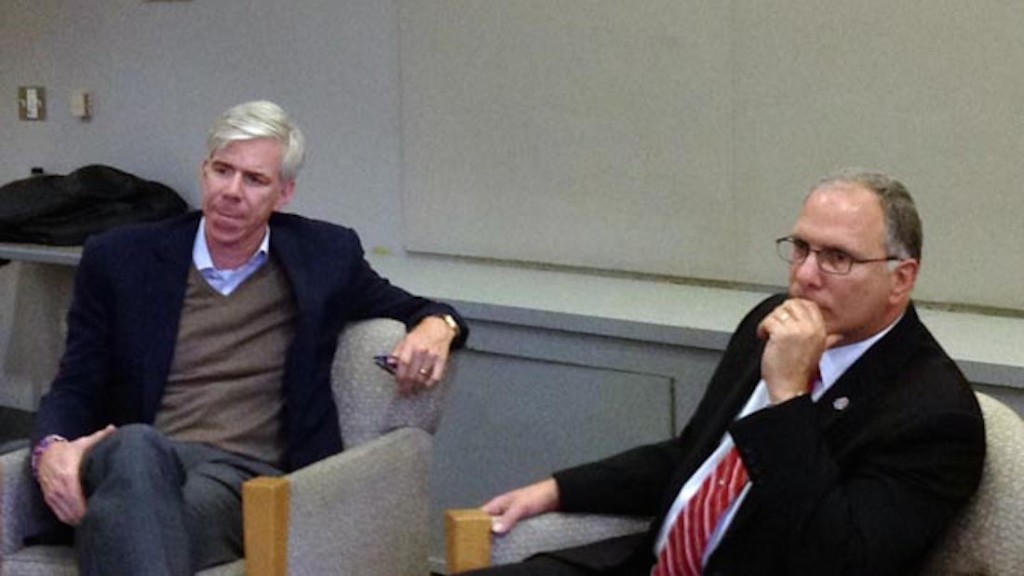
From left, witnesses Seth G. Jones, Jonathan Schanzer and Juan C. Zarate testify before the Task Force to Investigate Terrorism Financing, part of the House Committee on Financial Services. (Tobias Burns/MEDILL)
As the number of terrorist groups around the world increases, so do the ways in which they’re raising money to fund their activities, experts say.
“The funding is more global and more diversified than ever before, and it’s interacting less with the financial system,” said Juan C. Zarate, a senior adviser at the Center for Strategic and International Studies in Washington, who spoke Wednesday at the first meeting of Congress’ Task Force to Investigate Terrorism Financing.
Funding for groups like al-Qaida in the Arabian Peninsula and the Houthi in Yemen traditionally has come from wealthy donors and charitable organizations based in the Persian Gulf. U.S. counterterrorism officials within law enforcement and the Treasury Department have long had safeguards in place to identify those paper trails and trace their sources.
But with groups like the Islamic State in Iraq and Boko Haram in Nigeria openly controlling large swaths of land, counterterrorism efforts in the U.S. now must account for a host of new revenue streams that are augmenting the more entrenched sources.
These include the oil trade, farming, taxation and antiquities smuggling in addition to the more established illicit trades of drug trafficking, bank robbery, and kidnapping and ransom.
As a result, counterterrorism experts are looking to the military for strategic and operational assistance in choking off terrorist funding.
“The military and counterterrorism are closer than ever before,” Zarate told the panel of about 20 members of the House Financial Services Committee. “These groups have grown more local in their ability to raise funds, so we have to dislodge them from territory if we want to starve them of funds.”
Also casting doubt on some of traditional U.S. allies within the region is the involvement of the Islamic State, also known as ISIS, in the oil trade, which accounts for around 30 percent of the militant group’s estimated $2 billion net worth.
Rep. Stephen Lynch, D-Mass., said there are “trust issues” with Turkey in particular, which is thought to be one of the main consumers of the Islamic State’s stolen oil.
Speaking of a recent trip to the region, Lynch said, “When we confronted senior members of the Turkish government with aerial and satellite imagery of trucks crossing the border and selling oil in Turkey, there was serious denial.”
While oil and other territory-based revenue streams pose serious tactical questions for both lawmakers and the military, the task force acknowledged that they actually may be an indication of progress in the fight against terrorism.
“To an extent, we’re a victim of our own success,” Jonathan Schanzer, vice president at the Foundation for Defense of Democracies, told the task force. “We’ve been so effective at driving these groups out of the financial sector that they’re working more local and more underground.”









